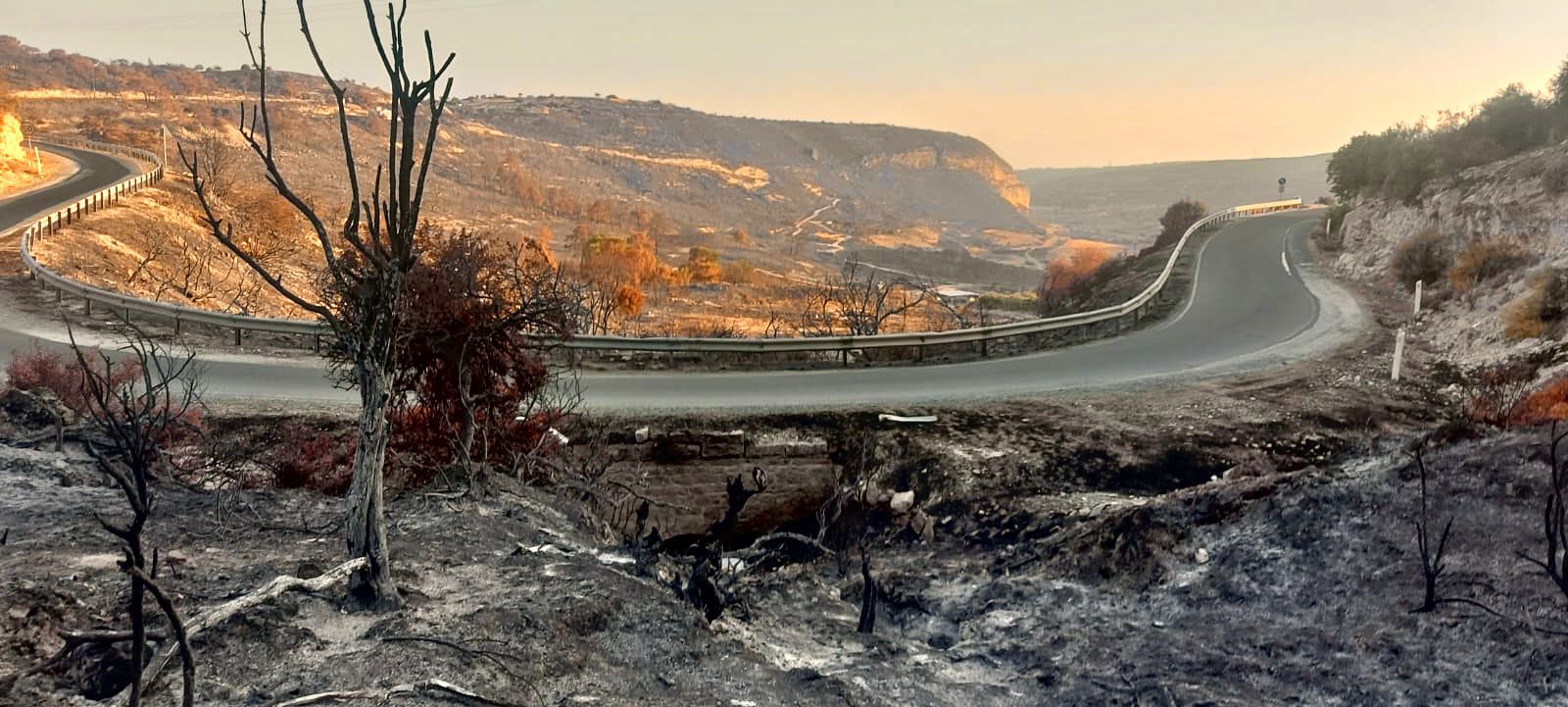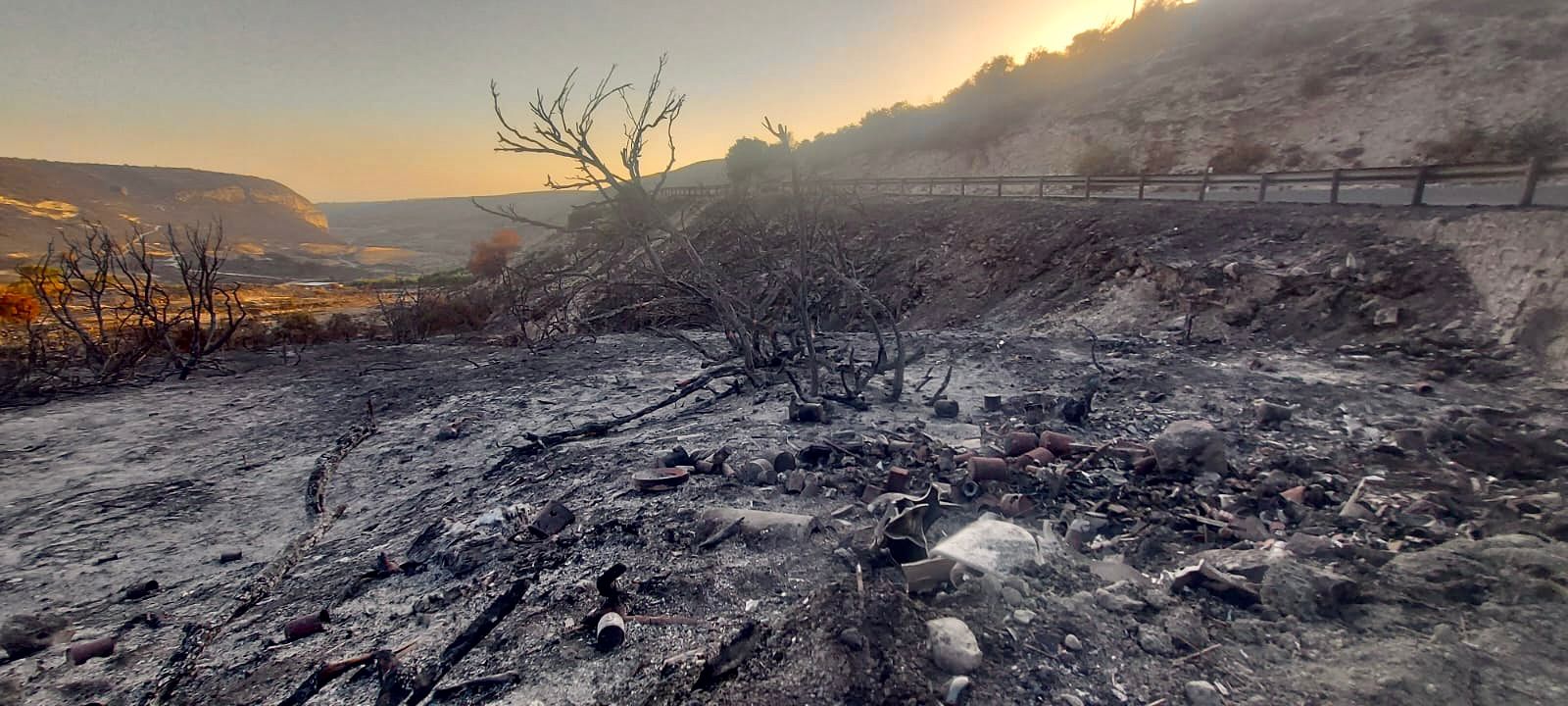By Athena Vlachou
Scorched land from Cyprus’s biggest wildfires in more than 50 years threatens to leave fields barren for decades if immediate measures are not taken by the government, a senior environment official warned.
Chair of the House environment committee, Charalambos Theopemptou, said emergency fire-recovery work must begin before the first seasonal rains in late October to prevent severe, long-term soil erosion in the Limassol district, where wildfires swept through mostly private land on July 23-24, killing two people.
According to the latest official figures, the fire burned an area of 124 square kilometres. Seventeen communities in mountainous Limassol were affected, of which 13 suffered severe losses.
In those communities, 706 buildings succumbed to the flames – 335 were completely destroyed and 371 partially. Among them were 532 homes, and 14,000 acres of agricultural fields.
Theopemptou, a former Green Party leader, said erosion prevention measures such as lining exposed grounds with rocks, hay, or timber to stop rainwater from penetrating are vital to have “hope of regeneration or any sort of growth in an area”.
He added: “It’s a huge area, so the government should send surveyors in as soon as possible to prepare estimates, talk to scientists and generally understand the morphology of the landscape.”
Surveyors, however, cannot begin work until landowners give permission, he said, urging the government to locate them and secure approval quickly before the first rainfall at the end of October.

“After a fire, the vegetation that was protecting the ground is gone and the topsoil becomes exposed to the rain”, he said in an interview on Tuesday. The surface is “soft and loosely compacted” and the absence of the regular pressure of vehicles or people makes it vulnerable to erosion.
Theopemptou said the Limassol fires were the worst since the 1974 invasion and that recovery could take “decades” depending on the soil and terrain.
If there is erosion, “you would have to wait for the winds or birds to bring new seeds — this is something that takes a very long time”, he said.
He called on the government to enact emergency legislation that would allow officials to carry out timely and procedural restoration work on private land after a fire. This would enable work to begin without prior consent unless the owners explicitly objected.
He also urged Cyprus to legally adopt the Hellenic Technical Specification ELOT 1501, which provides guidelines on using locally sourced timber-based erosion control structures following forest fires for the recovery of vegetation.
Theopemptou previously described the government response to the wildfires, and the lack of prevention measures, as “tragically insufficient”.
A Parliamentary session to address relief efforts on the Cyprus wildfires is scheduled for August 29.
Athena Vlachou is a London-based trainee journalist undertaking a postgraduate NCTJ-accredited diploma with News Associates, UK






Click here to change your cookie preferences